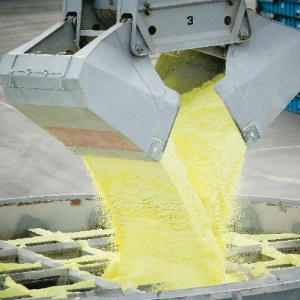The new prices became effective this week. This current round of price reductions follows drop in domestic prices last month.
Ballance chief executive Larry Bilodeau saying lower prices will help farmers plan ahead with confidence.
Among the reductions by Ballance is a $75 drop in urea prices to $640 a tonne, coming on top of a $30 reduction last month. Diammonium phosphate (DAP) is dropping by $70 a tonne to $850 and superphosphate is reducing $13 a tonne to $335.
Bilodeau says that with global markets for fertiliser stabilising, Ballance has been able to pass on purchasing benefits to customers prior to the co-operative's next quarterly review on September 1.
"We always keep prices under review to ensure they reflect the international market. We aim to supply the best quality nutrients at the lowest possible price. As a co-op, we are also able to pass on additional benefits to shareholders through our rebate based on fertiliser purchases during the year."
Ravensdown has dropped its urea price by $55 per tonne to $660/t which is on top of a $30 per tonne reduction in June. High analysis fertiliser DAP also comes down $55 per tonne to $865/t.
After the past two price reductions in December and June, the price of urea is $139/t cheaper than it was in December.
"Our key focus on securing soil nutrients on the global stage is going well because of a stronger currency position, increased fertiliser production capacity globally and softening demand for nutrients," says chief executive Greg Campbell.
"The dynamics are changing in the international production of urea with cheap gas reserves increasing production and investment in capacity. On the flip side, deteriorating economic factors in some markets have lowered demand for fertiliser. For example, China's growth is slowing and the Indian rupee is devaluing with farming subsidies there also being reduced," he says.
"Our supplier relationships are excellent and our shipments for the spring programme are contracted in with a number of ships already on the way."










